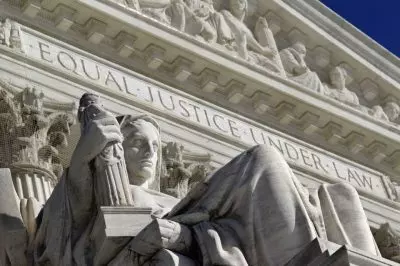 The case of a Michigan citizen suing over a casino of a Native American tribe has once again appeared before the Supreme Court judges, with the latter reportedly suggesting that the Congress’ decision to cease the lawsuit was a proper one.
The case of a Michigan citizen suing over a casino of a Native American tribe has once again appeared before the Supreme Court judges, with the latter reportedly suggesting that the Congress’ decision to cease the lawsuit was a proper one.
The lawsuit started in 2008, after the so-called Gun Lake Tribe of Pottawatomi Indians got a permission to construct a casino venue on land located in close proximity to David Patchak’s Wayland Township-based property. According to Mr. Patchak, the casino, which is approximately 3 miles away from his property, would lead to increased traffic and pollution, which on the other hand would end up changing the area’s character. The property owner further claimed that the land that was used by the Native American tribe for its casino had been improperly set aside by the federal government.
The case was dismissed by the federal court. Then, the case was brought to the appeals court and in 2012, which was more than a year after the official opening of the casino, the Supreme Court issued a ruling that the case could be given the green light once again.
Lawsuit and Following Appeals
 Congress, however, had other plans for the lawsuit and two years later, in 2014, a piece of legislation was passed to block the opportunity for any further legal action against the casino. Then, the lawsuit of Mr. Patchak against the tribe was dismissed.
Congress, however, had other plans for the lawsuit and two years later, in 2014, a piece of legislation was passed to block the opportunity for any further legal action against the casino. Then, the lawsuit of Mr. Patchak against the tribe was dismissed.
In oral arguments which took place yesterday, the lawyer of Mr. Patchak – Scott E. Gant – made claims that the Congress took unnecessarily harsh measures when it passed the law in 2014 and by this violated the principle of separation of powers, which is one of the major ones included in the Constitution. According to Mr. Gant, the result in Mr. Patchak’s legal action against the Native American tribe was improperly directed by the Congress.
In the Patchak v. Zinke case, the Supreme Court is expected to determine whether the federal statute blocking Mr. Patchak from pursuing a pending lawsuit was right.
Justice Elena Kagan, reaffirmed the Supreme Court’s opinion that Congress has the opportunity to withdraw the federal courts’ jurisdiction in order to make decisions that could affect pending cases. Other Supreme Court judges also backed the Congress’ decision, evaluating its actions as adequate.
In case that the Supreme Court rules in favour of Mr. Patchak and allows him to proceed with his legal action against the Native American tribe, he is to face a tough case against the casino, which last year brought to the state and local governments over $17 million.
Currently, the tribal casino is one of the 26 gaming venues on the territory of the state of Michigan. It offers more than 2,000 slot machines and 50 gaming tables which provide players with the opportunity to choose from a large variety of games, including roulette, blackjack and craps. The tribe’s spokesman James Nye also revealed that the construction of a five-story parking lot is also planned.